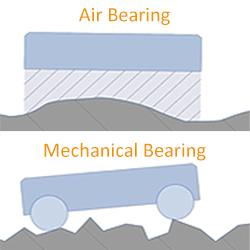ReWalk Announces Progress in Clinical Study of ReStore Powered Exo-Suit
Study of the ReStore device for stroke rehabilitation is being conducted at top research institutions and will support upcoming FDA submission
ReWalk Robotics, Ltd. (Nasdaq: RWLK) ("ReWalk" or the "Company"), a leading manufacturer of robotic medical devices for individuals with lower limb disabilities, announced today that the Institutional Review Boards of five leading U.S. research institutions have approved ReWalk's clinical study of the ReStore soft exo-suit device.
"We expect that the expansion of our clinical study to these renowned research organizations will bring the ReStore exo-suit closer to CE and FDA clearance,'' said ReWalk CEO Larry Jasinski. ''The ReStore will offer an immediate and cost-effective solution for the more than three million stroke patients in the U.S. with lower limb disabilities. We are thrilled to be partnering with the most prestigious institutions in the world to bring our product to market."
ReWalk anticipates commercializing the ReStore device for use by stroke patients in Europe and the United States in the first half of 2019, subject to the timing and receipt of CE mark and FDA clearance, respectively. Enrollment for the multi-center study is underway. The five research centers participating in the study include:
The Shirley Ryan AbilityLab in Chicago, IL;
Spaulding Rehabilitation Hospital in Boston, MA, in partnership with Boston University College of Health and Rehabilitation Sciences: Sargent College;
MossRehab Stroke and Neurological Disease Center in Elkins Park, PA;
TIRR Memorial Hermann in Houston, TX; and
Kessler Foundation in West Orange, NJ.
"The ReWalk ReStore is an unobtrusive wearable robotic technology that can seamlessly interact with and enhance everyday clinical care, allowing stroke patients to walk effectively and efficiently," explained Arun Jayaraman, PT, PhD who is Director of the Max Nader Lab for Rehabilitation Technologies & Outcomes Research at Shirley Ryan AbilityLab and lead investigator for the study.
This first-of-its-kind device unveiled in 2017, the novel ReStore soft exo-suit is the second product developed by ReWalk. Designed to be a versatile, cost-effective gait therapy solution, the ReStore provides therapists with the ability to adjust and optimize a patient's treatment using real-time analytics. The ReStore promotes an improved gait with coordinated plantarflexion and dorsiflexion assistance to a patient's impaired foot and ankle. Power is transmitted from waist belt-mounted motors through cables to attachment points on the calf and an insole which is placed in the patient's shoe. Sensors clipped to the patient's shoes detect motion and inform timing of the assistance. Using a handheld smartphone controller, a trained therapist is able to adjust assistance level, monitor key metrics such as session progress and gait symmetry, and record standard gait training assessments. The company has announced pricing of under $20,000 for the device.
For more information about the ReStore, or the clinical study, please visit www.rewalk.com.
About ReWalk Robotics Ltd.
ReWalk Robotics Ltd. develops, manufactures and markets wearable robotic exoskeletons for individuals with lower limb disabilities as a result of spinal cord injury or stroke. The Company's mission is to fundamentally change the quality of life for individuals with lower limb disability through the creation and development of market leading robotic technologies. Founded in 2001, ReWalk has headquarters in the United States, Israel and Germany. For more information on the ReWalk systems, please visit www.rewalk.com.
ReWalk® is a registered trademark of ReWalk Robotics Ltd. in Israel.
Featured Product

PI USA - 7 Reasons Why Air Bearings Outperform Mechanical Bearings
Motion system designers often ask the question whether to employ mechanical bearings or air bearings. Air bearings deserve a second look when application requirements include lifetime, precision, particle generation, reproducibility, angular accuracy, runout, straightness, and flatness.
